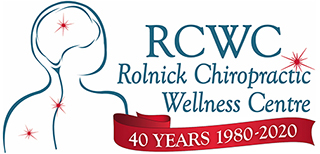Enhance Your Health
Health Tip of the Week: Hypertension
The major issue with contracting Covid-19 has to do with comorbidities. Comorbidities are the simultaneous presence of two or more diseases or medical conditions in a patient. Comorbidities increase your odds of having a tough time recovering from the coronavirus. Comorbidities are the leading cause of death concerning covid -19.
The most common comorbidities that we hear about are autoimmune diseases like diabetes and asthma. Having cancer, heart disease and being 30lbs or more over weight are also comorbitities.
In addition, being of older age (which is not an illness) will also put you in that camp.
Lastly, more and more research is showing that lower than normal vitamin D levels and a lack of exercise are also contributing factors to having a severe bout of covid-19 and possibly dying from the virus.
One comorbidity that we do not hear a lot about is high blood pressure. If you have hypertension (high blood pressure), you have twice the risk of dying from covid-19 than those with normal blood pressure as confirmed by an analysis of 2877 patients placed in hospitals in China for treatment of coronavirus.
Since high blood pressure is a major factor in heart disease, it is vitally important to have blood pressure levels in the normal range. For eons, normal blood pressure was considered to be any reading lower than 140/90.
The American Heart Association has since redefined the normal blood pressure reading to be any reading lower than 130/80.
This means that many more people are in the hypertensive category. High blood pressure occurs in people who are overweight, people who have a lot of stress or anxiety and also in people who have a genetic predisposition for high blood pressure.
Exercise and diet have always been the two top all natural ways of lowering blood pressure. New research shows that fasting has a major impact on blood pressure levels.
In my experience, intermittent fasting is the simplest and easiest form of fasting to implement. Intermittent fasting is when all of your food is only eaten in an 8 hour window.
For instance, Let’s say that your eating window is between 12pm and 8pm. If the last bite of food that enters your mouth is at 8pm, you do not eat again until after 12pm the next day.
No breakfast or mid-morning snack. Only black coffee, plain tea or water. Eat a sensible lunch, a small healthy snack if needed and a sensible dinner. All of the health benefits come from the amount of time when there is not any eating.
From 8pm to 12pm is 16 hrs without food. During those 16 hours, especially the 5 or 6 hours towards the end of the fast, your body is using its metabolism to burn calories and lower it’s insulin resistance. Research on fasting shows that the not eating during the 16 hours has an affect on lowering blood pressure.
Certain foods have also been shown to have an affect on lowering blood pressure. Arugula is high in potassium, magnesium and calcium, all important minerals for heart health. Pistachio nuts, olive oil, tomatoes and celery are foods that keep your arteries flexible and lower your blood pressure.
Foods to avoid are foods that contain sugar, refined white flour, hydrogenated oils, processed fruit juices and omega 6 fats like corn, safflower, canola and soybean oil. All bad for heart health and contributors of high blood pressure.
Eating the good foods and not eating the bad foods in conjunction with intermittent fasting and a regular exercise program will not only help your heart be healthy and lower your blood pressure, but I will bet that you will lose weight, have more energy and sleep better too. And this will help your odds of recovering from covid-19 as well.
Pregnancy News
This just in as reported on in the Wall Street Journal, the World Health Organization is advising pregnant women not to take either the Pfizer or Moderna COVID-19 vaccine, unless they are at high risk of exposure or of a severe case of the disease. Pregnant women weren’t included in the clinical trials.
However, the WHO doesn’t recommend pregnancy testing before getting the shot or delaying getting pregnant after the shot.
On the other hand, they gave their approval for the vaccine to breastfeeding mothers. Which does not make sense to me, as the vaccine additives would be passed onto the baby.
In a slight variation to the WHO’s recommendations, the U.S. Centers for Disease Control and Prevention says that it’s OK to get the vaccine if you’re pregnant and want it. So, the bottom line here is strange information and contradiction. Par for the course.
COVID-19 Vaccine Update
As you are aware, as reported on in the news, people who have certain allergies are at risk for negative reactions to the COVID-19 vaccination. In addition, it has been recently brought up that due to the type of vaccine that was developed (the utilization of messenger RNA and PEGylated lipid nanoparticles) people who have certain health conditions are at an increased risk for vaccine reactions.
The main health conditions that may have an increased risk of side effects include: Parkinson's disease, rheumatoid arthritis, HIV or chronic Lyme. In addition, certain types of cancers and autoimmune diseases like diabetes are included. If you have any of these conditions and are considering getting vaccinated, please speak with your doctor.
The main issue is that synthetic mRNA can signal your immune system to increase inflammatory processes in the body and the PEG nanoparticles have been shown to cause anaphylaxis.
According to the CDC Vaccine Adverse Reporting System, as of Friday, 1/29/21, 9,794 adverse reactions from the vaccine have been reported including 232 deaths.

